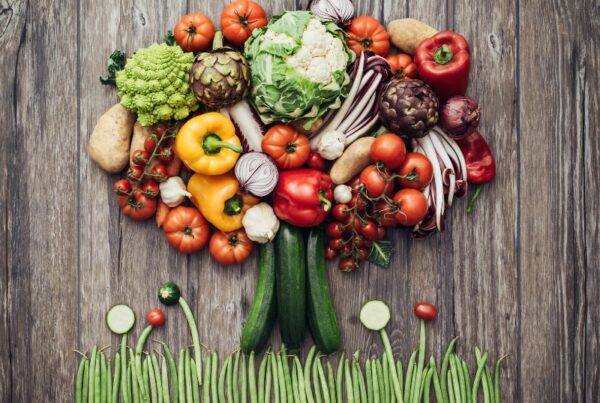Sowing a Humane Future
There is a growing concern for the ethical treatment of animals. Consumers are now more mindful of ethical practices in the food production industry. To demonstrate a strong commitment to maintaining ethical standards, many companies have adopted animal welfare certification programs such as Global Animal Partnership, American Humane, and Certified Animal Welfare Approved by AGW. These programs have been designed to ensure animals are treated humanely throughout every stage of the production process.
True Grade looks to associated with producers who put a premium on animal welfare, not only because it is the right thing to do, but ultimately it produces a healthier, more natural, better tasting product. This resonates with customers like Royal Caribbean who increasingly prioritize ethically sourced products and reinforce True Grade’s core values. As a prominent cruise line, Royal Caribbean is very open about the sustainability of its supply chain, specifically when it comes to sourcing food products. Sustainable sourcing practices are often achieved through close collaboration with suppliers who adhere to recognized standards and certifications, such as those provided by organizations like Global Animal Partnership.
Global Animal Partnership (GAP):
Global Animal Partnership is an organization that established a comprehensive Animal Welfare Certification Program. Their mission is to improve the lives of farm animals by working together with farmers, producers, and retailers.
GAP has developed a tiered system based on specific animal welfare standards. Ranging from Step 1 to Step 5+, each tier represents different steps farmers take to protect the integrity of their products and better the lives of animals allowing consumers to make informed choices.

GAP collaborates with farmers and producers to ensure they meet the necessary requirements for each tier. This includes providing animals adequate space, proper nutrition, and appropriate handling techniques. Audits are conducted regularly to ensure compliance with the program’s standards.
- Base Certification: Animals are afforded certain basic welfare standards, such as no cages or crates and sufficient space to move around.
- Enriched Environment: Providing animals with an enriched environment that goes beyond the basic requirements of Step 1. The additional space and environmental enhancements are designed to support the animals’ well-being and encourage natural behaviors.
- Outdoor Access: Providing enhanced outdoor access, allowing animals to be outdoors continuously, weather permitting. The additional space and outdoor access contribute to improved animal welfare by allowing them to express natural behaviors and have a more diverse environment.
- Pasture Raised: Animals have continuous access to the outdoors, including pasture, allowing them to graze and engage in natural behaviors.
- Animal Centered: Places the well-being and needs of animals at the forefront of decision-making and practices.
5+ Entire Life of Farm: Providing an animal-centered, pasture-based environment. This step represents the highest level of welfare in the 5-Step program. Animals in Step 5 have the most space, with continuous access to the outdoors and pasture, allowing them to express natural behaviors, graze, and move freely.
Certified Animal Welfare Approved by AGW:
Certified Animal Welfare Approved by AGW is a rigorous animal welfare program for family farms in the United States and Canada, prioritizing pasture-based systems and sustainable practices across various products. Ensuring high standards for meat, dairy, eggs, and poultry, the certification emphasizes animals’ access to fresh air, clean water, and ample space for natural behaviors.
AGW collaborates closely with farmers, conducting thorough audits to enforce compliance with stringent criteria for animal care, environmental impact, and transparency. As a company committed to transparency and ethical sourcing, True Grade recognizes the significance of supporting these certifications, contributing to a more responsible and sustainable future for agriculture and animal welfare.
American Humane:
American Humane created the first welfare certification program in the United States dedicated to ensuring the humane treatment and responsible care of farm animals. Their certification, the American Humane Certified label, signifies adherence to rigorous standards covering aspects such as appropriate housing, feeding, and veterinary care.
Through regular audits, American Humane verifies compliance, promoting transparency and accountability in the farming industry. Coleman Natural Foods has garnered recognition for its commitment to gestation crate-free pork production, responding to growing consumer concerns about the humane treatment of animals in the food production industry. Coleman Natural Foods emphasizes the well-being of animals through their commitment to five important areas of animal care:
- Diet & Hydration: Coleman ensures that animals receive proper nutrition and access to clean water. A balanced diet and hydration are essential for the health and vitality of the animals under their care.
- Environment: The company focuses on providing animals with a suitable and comfortable living environment. This includes considerations for space, cleanliness, and other factors that contribute to the overall well-being of the animals.
- Management & Care: Coleman Natural Foods prioritizes effective management and care practices for the animals. This involves responsible handling, regular health checks, and attention to the behavioral needs of the animals to ensure their physical and mental welfare.
- Health & Safety: The health and safety of the animals are paramount. Coleman implements healthcare programs and veterinary care to prevent and address illnesses or injuries. This proactive approach contributes to maintaining a healthy and safe environment for the animals.
- Transportation: In the transportation of animals, Coleman Natural Foods follows humane practices. They strive to minimize stress and discomfort during transportation, aligning with ethical standards in animal care.
Animal Welfare Certifications are a crucial tool for promoting the humane treatment of animals and supporting sustainable agriculture. By choosing products with reputable certifications, we can make a difference and contribute to a more compassionate and ethical food system. Let’s prioritize animal welfare and make conscious choices that benefit both animals and consumers.







